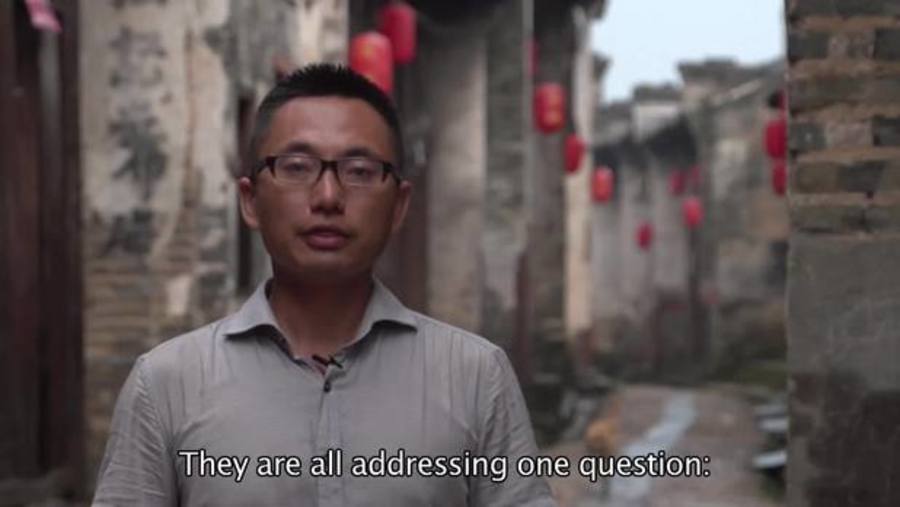 Try these videos to get started. Must be on campus or login with your COM account for off campus access.
Try these videos to get started. Must be on campus or login with your COM account for off campus access.
Want more on finding media? Try Articles & Media.
-
ABC SERIES: What Would You Do? Instinctive Reactions and What They Reveal
What happens when ordinary people become witnesses to upsetting events—such as a theft in progress, the possibility of domestic violence, or the abuse of another citizen’s civil rights? Do most people follow the same emotional and psychological patterns when reacting? Is there such a thing as a “normal” reaction? This three-part ABC News series captures raw responses to staged situations with the help of actors and hidden cameras. Whether compelled to take action or to mind his or her own business, each unknowing participant makes a split-second—and often surprising—decision that will interest students of psychology, sociology, and ethics. Original ABC News broadcast title: What Would You Do? 3-part series, 33-38 minutes each.
-
Business Ethics: The Bottom Line (29:00)
Is today’s corporate culture, characterized by exorbitant CEO salaries, downsizing, and benefit reductions, alienating employers from employees? What moral obligations do companies have to the people who work for them, and to the communities they serve? In this program, a group of business experts examine these issues, and discuss how companies can do "the right thing" and still improve their bottom lines. Experts include the president and CEO of a large corporation, a senior fellow at the Brookings Institution, and a former executive committee member of Johnson & Johnson
-
Ethics: What Is Right? (50:00)
Moral philosophy lies at the heart of today’s most heated issues—abortion, human cloning, assisted suicide, financial conflicts of interest, and environmental stewardship. In this program, Harvard University’s Frances Kamm; Rutgers University’s Larry Temkin; and Richard Sorabji, honorary fellow at Wolfson College, the University of Oxford, describe the three major categories of ethics: metaethics; applied ethics; and normative ethics, including virtue theory, divine command theory, utilitarian theory, and duty theory. Plato’s Republic, Aristotle’s Nicomachean Ethics, Kant’s Grounding for the Metaphysics of Morals, and Mill’s Utilitarianism are considered, along with the contributions of Epicurus, Hume, Bentham, Hegel, Marx, Nietzsche, John Rawls, and others. Part of the series Great Ideas of Philosophy I.
-
Ethics: Who Decides Now What Is Right? (25:00)
What values should we consider universal and worth preserving for posterity? Do we need a new paradigm of civil and global interaction, or are the best answers to current human problems still found in long-standing moral traditions—even if they are subjective and disparate? This program spotlights scholars and philosophers who explore profound questions of ethics, morality, evil, and idealism. Insight comes from moral philosopher Susan Neiman, author of Evil in Modern Thought: An Alternative History of Philosophy and Moral Clarity: A Guide for Grown-Up Idealists; South African poet Antjie Krog, recipient of the Hiroshima Peace Culture Foundation Award (2000); Canadian intellectual Charles Taylor, author of A Secular Age; Quranic scholar Nasr Abu Zayd, who left Egypt after fundamentalists declared him apostate; and others. A part of the series LUX: Great Thinkers on the Future.
-
Global Civics: Social Ethics in an Interdependent World (55:51)
We live in a world where an epidemic in Mexico affects lives in Europe, air pollution in China disturbs crops in Bangladesh, and financial disaster in the U.S. impacts economic growth everywhere. Given this high level of interdependence, isn’t it more important than ever to be aware of the effect of our actions on the rest of the planet? Filmmaker Jian Yi and his team discussed this question with people from a variety of backgrounds on five different continents. The respondents’ thoughts, offered in this documentary, represent the views of businesspeople and artists, students and theologians, as well as a Nobel laureate, a UN economist, and an Internet guru. Inspired by the work of Hakan Altinay (Global Civics: Responsibilities and Rights in an Interdependent World), the film calls for an increased sense of social responsibility. With Wikipedia cofounder Jimmy Wales, economist Kemal Dervis, and others. (Portions with English subtitles).
-
HBO: The Truth About Killer Robot (1:19:50)
When a robot kills a human, who takes the blame? The Truth About Killer Robots explores this question, as well as many other practical and ethical matters that humans face as we become more dependent on robots than ever before. An eerie, eye-opening work of science nonfiction, this 83-minute documentary from director Maxim Pozdorovkin (Pussy Riot: A Punk Prayer) charts incidents in which robots caused the deaths of humans—in an automated Volkswagen factory, in a self-driving Tesla vehicle, and by a bomb-carrying droid used by Dallas police—considering the issues that these cases, typically treated as freak anomalies, raise in terms of accountability and morality. Highlighting the provocative views of engineers, journalists and philosophers, and narrated by a lifelike Japanese android Kodomoroid, the film goes beyond the sensational deaths to examine more subtle but pervasive ways that robots pose a threat to society, challenging us to question what a future living amongst these non-human entities could mean for humankind as we know it.
-
The Moral Implications of Scientific Advances: Leon R. Kass (53:00)
Leon R. Kass joins body and soul uniquely as a physician and philosopher. Trained as a doctor, with a degree in biochemistry, he believes that scientific discoveries have raised questions which scientific reasoning can’t answer. In this program with Bill Moyers, Dr. Kass, a professor at the University of Chicago, explores the moral implications of euthanasia and of medical advances in assisted reproduction.
-
Series: Medical Ethics: Real-World Applications
While the field of medical ethics often deals in abstractions-including historical currents, sociological findings, theological perspectives, and complex philosophical arguments-it comes alive when applied in real-world settings, whether they're clinical, spiritual, political, or personal. This three-part series balances all of those ethical arenas as it examines genetic engineering, in vitro fertilization, and euthanasia in the 21st century. Viewable/printable educational resources are available online. 3-part series, 19-25 minutes each.
![]() Try these videos to get started. Must be on campus or login with your COM account for off campus access.
Try these videos to get started. Must be on campus or login with your COM account for off campus access.






